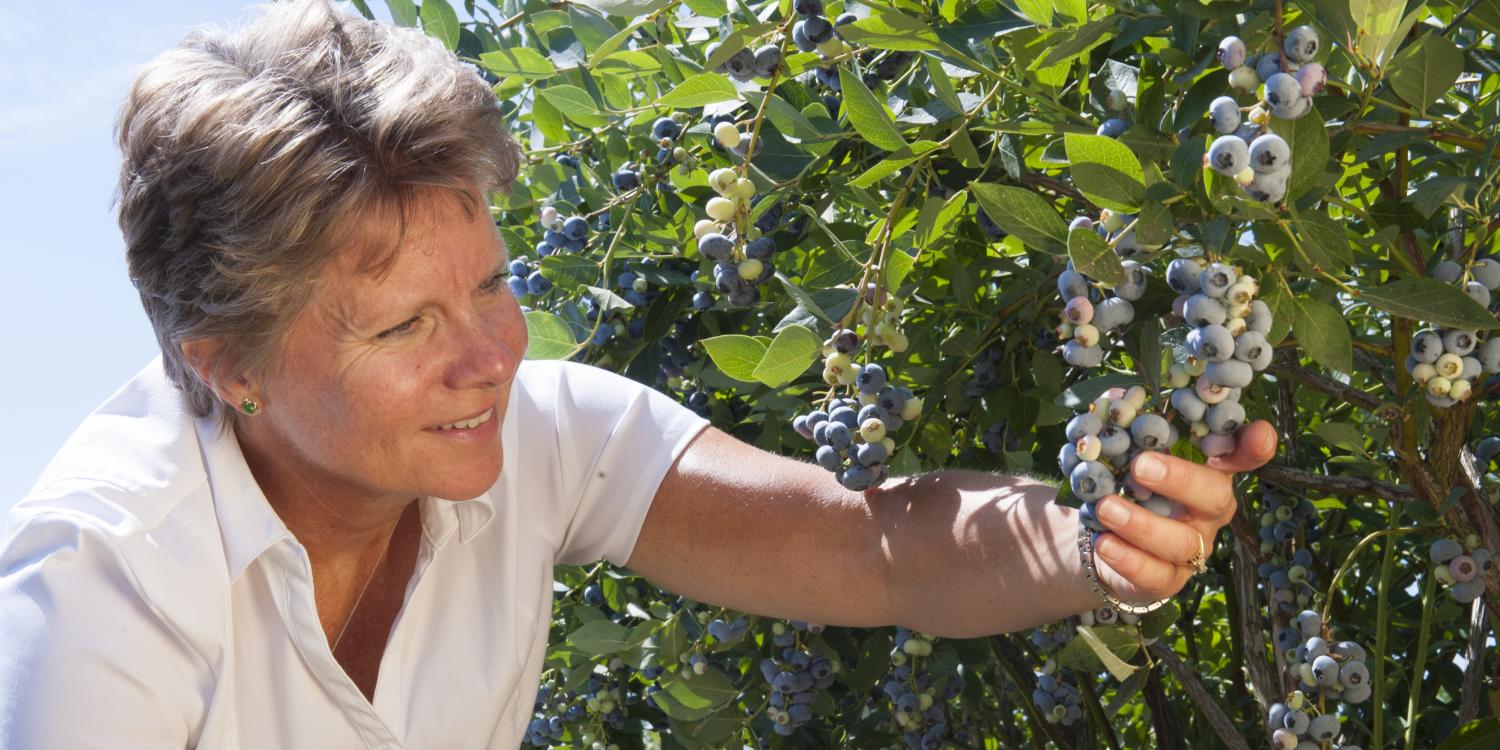
Finding ways to reduce costs while increasing production is critical for organic blueberry growers. Organic fertilizers cost 10 times more than conventional products and approved herbicides are less effective and costlier.
The Oregon State University Extension Service and Agricultural Experiment Station stepped up with the first long-term, certified organic study of its kind, a 10-year project to look at the outcome of growing highbush blueberries in raised beds vs. flat ground, the most efficient type and amount of fertilizer to apply, and how best to combat weeds with various mulches.
The late Bernadine Strik, then the OSU Extension berry crops specialist and professor in the Department of Horticulture, said the research shows organic growers can get a higher yield at the lowest cost by using the final recommendations, a pivotal finding for the organic industry, which has grown from 2 percent of regional blueberry production in 2006 to as much as 20 percent in 2016. The Pacific Northwest is now the largest organic production region for blueberries in the world.
The study, conducted at Strik's research plots at the North Willamette Research and Extension Center just south of Portland, revealed that growing on raised beds, using feather meal rather than the usual fish solubles and mulching with weed mat would increase yields. One blueberry cultivar – ‘Liberty’ – performed better in raised beds, producing 22 percent better cumulative yields over the nine years of harvest. The weed mat proved the most effective mulch for controlling weeds, allowing for a 6 percent increase in cumulative yield. Yield was 10 percent greater with feather meal than with the usual fish solubles. When using fish solubles, fertilizing with the lowest rate studied was important for high yield – a huge cost savings for growers.
Organic blueberry growers can now go toe-to-toe with commercial growers if they plant in raised beds, use a weed mat mulch and a relatively low rate of nitrogen.